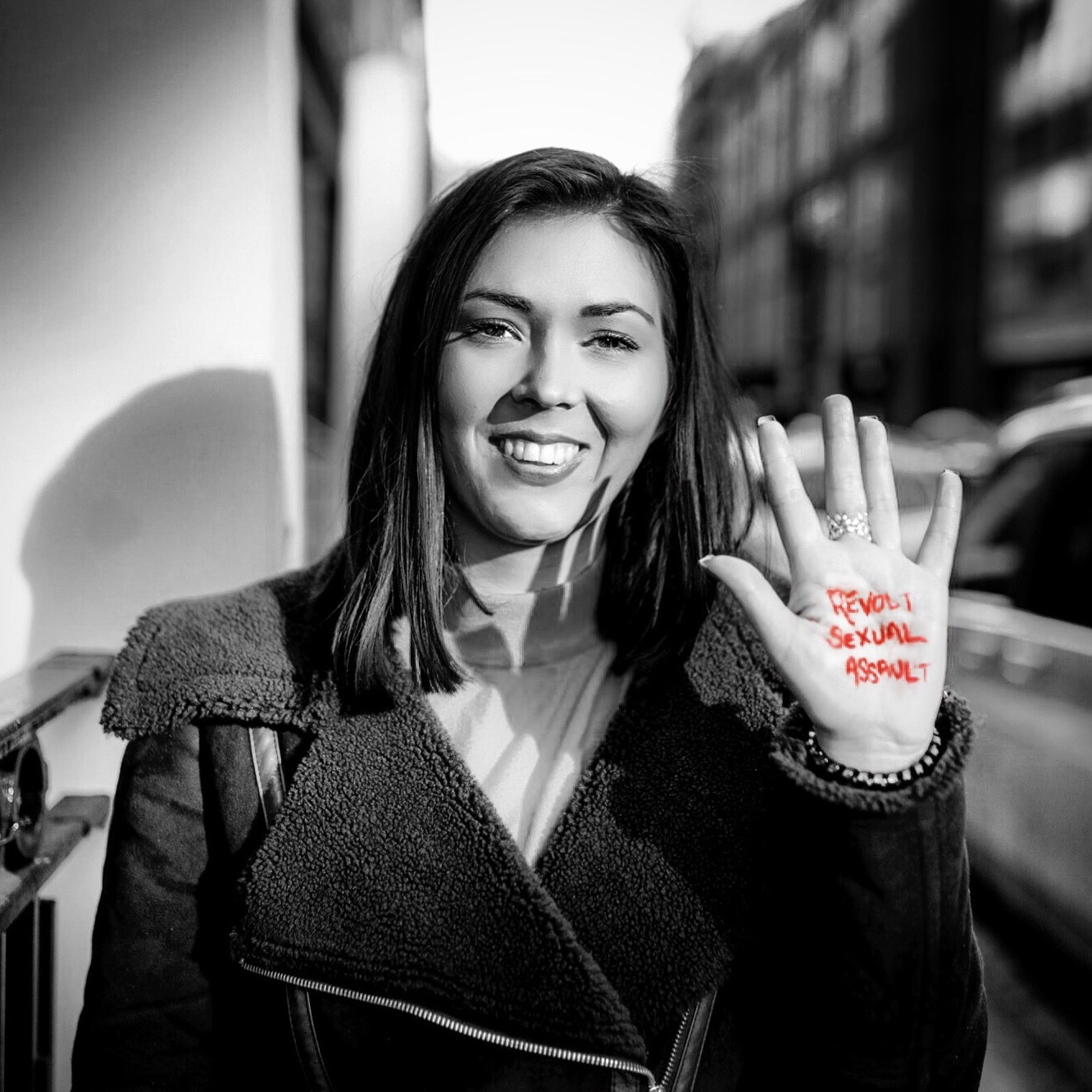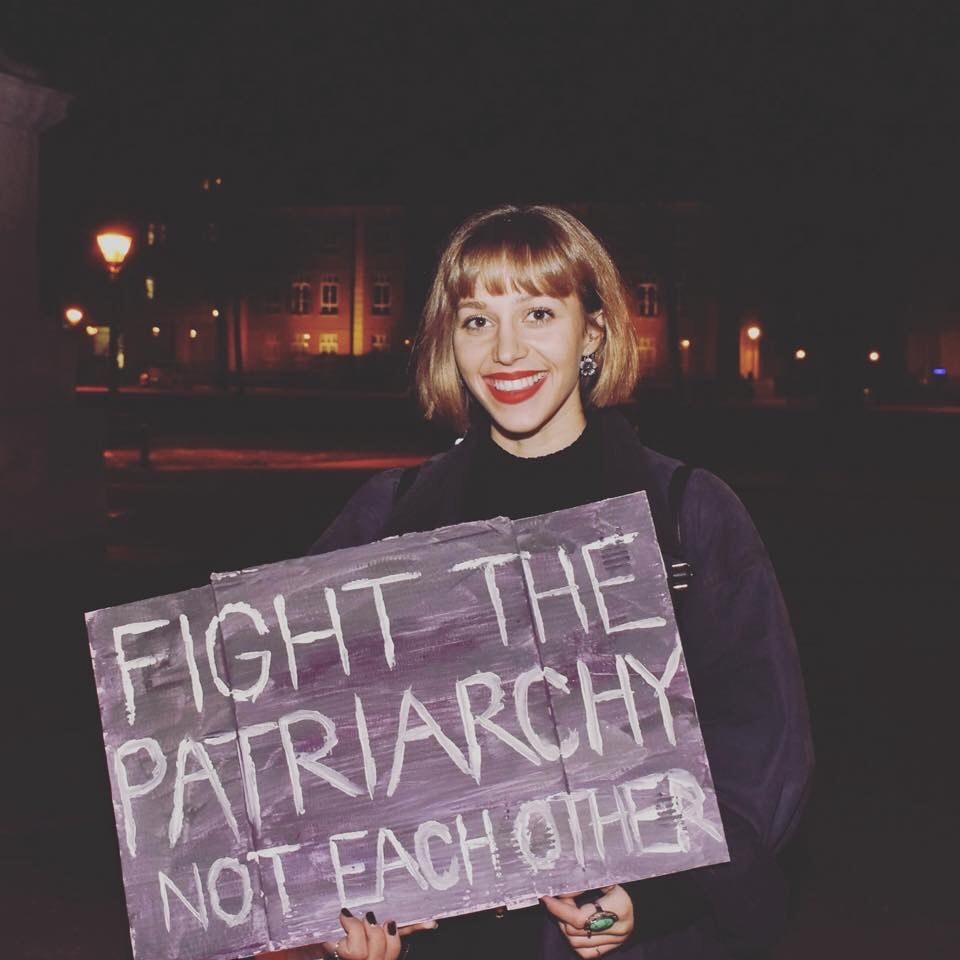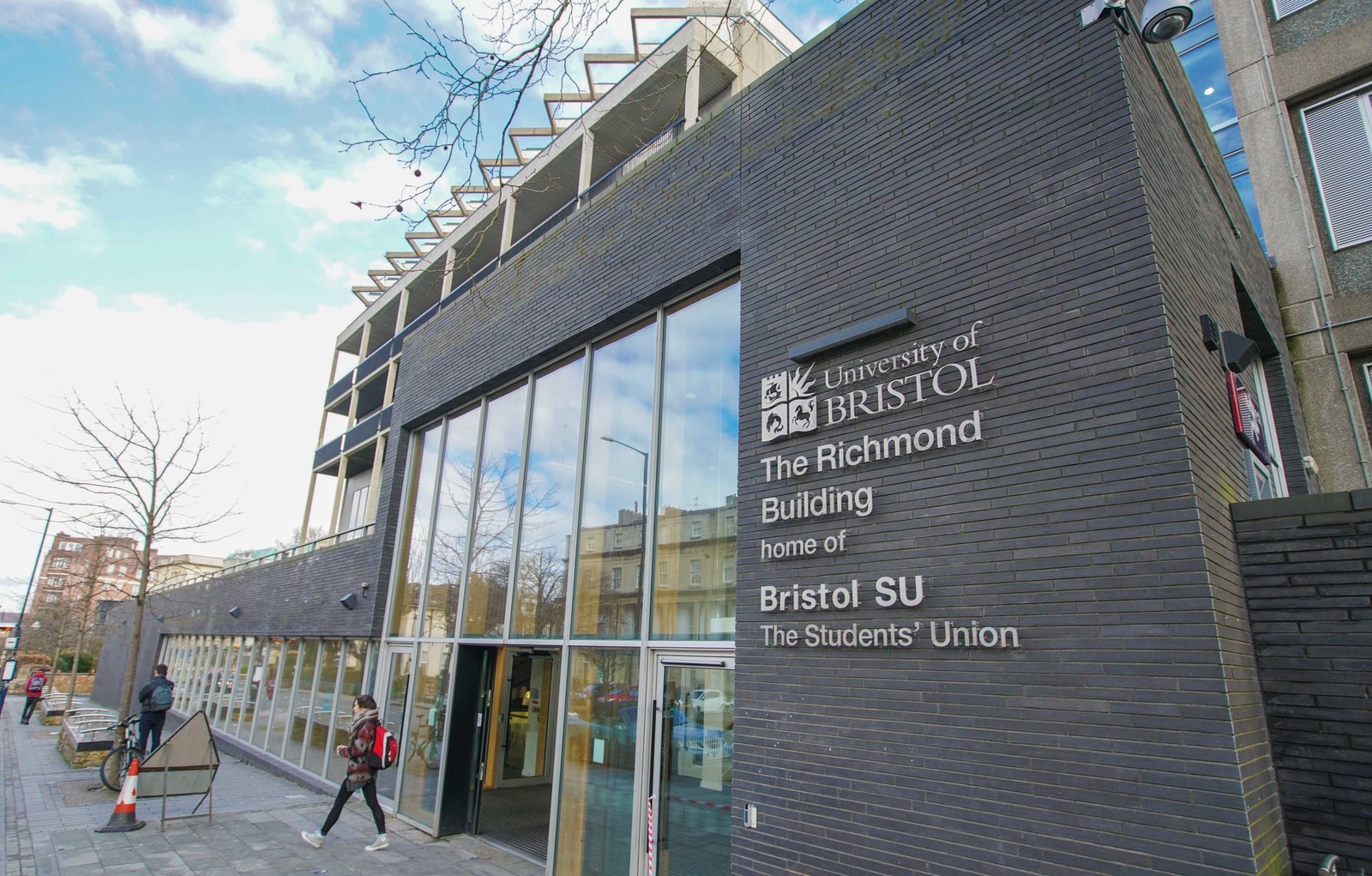
When Bryony Chellew arrived in Bristol for freshers’ week, she was excited to make the most of a new city and throw herself into university life. She didn't expect her experience to turn so sour, so quickly.
In the weeks before her 19th birthday, in November and December 2016, she was sexually assaulted twice. It took her until March to work up the courage to email her personal tutor, realising that she couldn't cope with the anguish and turmoil of her experience alone.
It was a further eight months before she had her first face-to-face meeting with a member of Bristol University staff. She's one of a number of people connected to the university who told BuzzFeed News they were frustrated with the lack of specialist staff proposed in a welfare overhaul due this year.
In February Chellew published an opinion column in the student newspaper Epigram, in which she described her own ordeal with student welfare services. The column prompted BuzzFeed News to look into the issues at Bristol further.
The university has been thrown into the spotlight on several occasions in the past 18 months over the issue of sexual assault and the provision of pastoral services.
It first found itself in the public eye late last year, when students used Snapchat to speak out about their experiences of sexual harassment. This #RevoltAgainstSexualAssault project then launched on a national scale, exposing the prevalence of sexual assault at UK universities.
A few months later, in January, a law student killed himself – the seventh student suicide at Bristol in 18 months – not long after the university announced plans for a controversial new model for pastoral support in halls.
The plans, which involved scrapping key residential welfare roles and replacing them with central "hubs", sparked uproar among students who argued that the system would become depersonalised and that students need more student mentors and frontline staff, not fewer.
Then, in February, the university bowed to student pressure and published revised plans that would increase current annual investment in pastoral services from £2.6 million to £2.9 million. The university has also invested an additional £1 million a year to enhance its student support services.
Yet students are disappointed that the new vision doesn't include expert support for victims of sexual assault and harassment.

Hannah Price, the founder of Revolt Sexual Assault and a former student, was a victim herself. She told BuzzFeed News that, while sexual violence is a problem across UK universities, she felt Bristol had been "particularly reluctant" to work with her project to improve services.
"I have reached out multiple times to student services and the vice chancellor, regarding how they can be addressing sexual violence, with our help, but they declined to participate in our national survey due to the NSS [the National Student Survey], and last year I never heard back from our offer to help them tackle the issue at Bristol," she said.
A spokesperson for the university said it had held a "positive meeting with Hannah to discuss her campaign," adding: "The decision was taken not to distribute her survey as it clashed with other surveys we were promoting to students at the time." Price, however, said there had only been "a short phone conversation where they said that I was better off contacting the forum."
Victims of sexual assault and campaigners at the university have told BuzzFeed News that specialist support staff should be made available on campus as part of the upcoming overhaul.
Other UK universities provide such support in a number of ways. The University of Cambridge has a permanent sexual assault and harassment adviser, while Exeter, King's College, and Manchester have advisers who specialise in harassment or "dignity and respect". At University College London, independent sexual violence advisers from Rape Crisis are called in to talk to victims on request, rather than victims being referred externally.
Chellew, now 20, believes speaking to a specialist could have helped her. When she first reported her assault, she says she was offered a phone call rather than a meeting.

"It wasn’t a particularly encouraging response, especially as the reasoning for having to speak on the phone was due to their meeting spaces being 'now full for this week'," she told BuzzFeed News.
"Reaching out for help felt like a huge step from me, which is why I find the university’s system so problematic," she added. "What felt like a monumental step for me was not met with the provision of support I would have expected, and in a lot of ways made me feel invalidated in my right to pastoral care."
When she eventually had her first meeting in person last November, she found that, to her horror, her senior tutor was not aware of the assaults. Despite having been assured that she would not have to describe the traumatic details again, she said she had to prompt the tutor to read an email.
After the meeting, she was told to fill out an online form to sign up for counselling and advised, because of lengthy waiting lists, to contact her senior tutor who could flag her case as high-priority.
Yet she felt uneasy about the notion that if her case were boosted to the top, another student's would be delayed. "I didn't fill out the online form because I disagreed so much with the way things were being dealt with," she said.
Chellew is not the only victim calling for improvements to the new system. A second student, who wished to remain anonymous, told BuzzFeed News she was sexually assaulted in her halls of residence during her first term — months after Revolt Sexual Assault first campaigned at Bristol.
Under the current setup, each halls of residence is home to older students known as "senior residents" and academics called "wardens" who are undergraduates' first port of call for welfare issues.
Unlike in Chellew's case, her senior resident was informed about the assault the following day. A student support adviser gave her a list of phone numbers for external counselling services.
"They just sort of sat on my shelf tucked away. I didn’t actually ... want any sort of help. I was just sort of like, 'I don’t want to talk to anyone about it right now,'" she said.
While the student support adviser kept in touch, she made it clear that she was no expert. Two weeks after reporting the assault, in December 2017, the student was advised to sign up for the university's counselling service.
"They said, 'It might take a while for you to see someone, so it’s a good idea to sign up now and then you’re on the waiting list, so when you actually might need it you might be able to get it quicker.' So I signed up."

In the months that followed, she found herself struggling with work. Her departmental senior tutor helped her fill out an extenuating circumstances form to extend her deadlines.
"Sometimes I would be so desperate to forget about what happened that I would actually find work was a distraction and would actually help me forget about it," she said. "But other times it would be the complete opposite. Work was so far pushed back in terms of my priorities, and I just couldn’t work at all."
She was offered an appointment with an external charity before she heard back from the counselling service, and was subsequently removed from the university's waiting list.
She said she was "unhappy" with the lack of communication and specialist staff.
"It was literally just the student support adviser and the senior resident, really, who were offering me support, and a limited bit from the senior tutor. But although they were there, they were only there as maybe a friend would [be]," she said.
"They’re not trained, they don’t know what kind of things to say to you that you want to hear," she said. "They said they were trained to some extent in how to deal with students having some sort of difficulty, but only trained on information, not really support.
"Sexual assault is really widespread. It’s much more widespread than people realise amongst young people, especially when they’re going out and drinking. Why shouldn’t they be trained in dealing with sexual assault victims?"
She and Chellew were disadvantaged because the lack of a clear reporting system meant they didn't know who to turn to, according to Sally Patterson, the students' union women's officer. Some students have even come to her in the past.

"They came to me because they didn’t know who else to go to. And I think that is not adequate," she said. "I am a third-year student who cares a lot about these issues and truly wants to drive change, but I am not a sexual assault specialist."
"I wouldn’t know how to make a formal complaint, and I also wouldn’t know how to ... report an incident that happened," she added.
A university spokesperson said: "There is a ‘Report and Support’ holding page on the Current Students Your Health and Wellbeing web page. The new Report and Support tool should make this easier."
However, Patterson said that when she took up the role she was underwhelmed by the active efforts to challenge sexual assault, which, according to her, "lagged behind" other universities in the area.
One of the main problems, she felt, was that consent classes — when offered to students — were "unprofessional" and "run by people who were not qualified to be doing them". As a result, she said, they were withdrawn before the current academic year.
"It’s really terrible that a whole year group of students have missed out on what is one of the key issues that face students today. That’s inexcusable," Patterson said.
A spokesperson for the university denied that the classes had been withdrawn: "Instead the issue was included in new workshops held in student residences which cover a breadth of themes relevant to students who are starting university," they said.
They went on: "The consent workshops have been developed in conjunction with Somerset & Avon Rape & Sexual Abuse Support over the last two years. The new format appears to be working as twice as many students attended last year."
Patterson noted that the university is looking into bystander intervention workshops to show staff and students how to react if they witness an assault. This is a move that Hannah Price, too, feels strongly about, but she says that Bristol has been slow to act.
"Since May last year the university has been promising the introduction of bystander training and anonymous reporting, but I’ve yet to see them formally introduced — which is disappointing considering how many Bristol students have spoken out about the current failing system," Price said.
A spokesperson for the university said its "Report and Support" tool was on course to be launched before the end of the academic year, but added: "We want to get it absolutely right before it’s launched."
They went on: "We have piloted the use of Bystander Intervention workshops for pastoral staff and senior students in residences, and are considering how best to build on this kind of training."

Price wants trained specialists to be introduced as part of the new plans, saying it's "upsetting" to see students' experiences dismissed.
"I 100% support the call for specialist staff in sexual violence disclosures," she said. "At the moment Bristol and many other universities majorly rely on personal tutors that are academic members of staff and not hired for their pastoral abilities – making them untrained and unapproachable for distressing matters such as sexual assault."
Patterson, too, wants to see expert staff available for students.
"This is important as, under the current system, victims of sexual violence may not know who to turn to in order to gain support or advice, and they also may not feel comfortable disclosing to their allocated senior resident or warden," she said.

Patterson described the current network of senior residents and wardens as a "lucky dip".
"If you happen to have a great senior resident and a great, active warden then you’re likely to be far more supported. If, however, you end up in a hall that has an unresponsive senior resident and doesn’t have a warden at the time, you are going to be pretty much alone when you’re in halls," she said.
A lot of staff work hard to support their students and the university counselling service itself does a "fantastic" job, she added, but it needs more resources and specialist staff in this area.
Patterson recently passed a motion in the students' union asking the university to actively work with external charities such as Zero Tolerance to challenge sexual assault. While discussions are underway, she wants to see change happen faster.
"There are all these external bodies who are doing incredible things, but I want to see Bristol University standing up to the plate and taking the responsibility of their students," she said.
Mark Ames, director of student services at the University of Bristol, acknowledged it "can be difficult for students to report these issues" and said that the online "Report and Support" tool would make the process easier.
Ames told BuzzFeed News that while the university does have a team of counsellors, it is "primarily an academic institution and cannot replicate the excellent, longer-term, specialist services provided by dedicated organisations in the city".
"Our priority is to ensure our students receive the best advice and support available, whether this is in-house or externally," he said.

In response to Chellew and the second student's ordeals, he said it was "concerning" to hear that any student has been dissatisfied with the support they've received, but could not comment on individual cases due to student confidentiality.
"If a student who has experienced sexual assault or harassment requests a one-to-one counselling session, a trained counsellor will meet with them to determine the level of support which is needed and who is best placed to provide this," he added, despite the two students' experiences.
"The welfare of all our students is vitally important to us and we have a zero-tolerance approach to sexual harassment and clear policies are in place to deal with complaints.
"We are also introducing a whole-institution approach to support, which includes major investments in a new student wellbeing service in our academic schools, in central services such as our student counselling and health services, and in pastoral support in our halls."
He said the new student support model would be "sector-leading".
"This involves recruiting a new team of full-time, intensively trained staff who will provide support around the clock 365 days a year, alongside live-in student mentors. They will support students with a range of issues, including sexual assault and how best to access specialist support.”
For Chellew, though, including sexual assault as one part of training on a "range of issues" is not enough.
"I can see why they see benefit in their proposed new model," she said, "but as long as they continue not employing staff who are actually trained in what they would describe as 'specialist circumstances' then I cannot believe that they have a commendable pastoral system."
On the wider issue of sexual assault, a spokesperson for the university said: "We are already working on this issue as a founder member of the Bristol-wide Joint Forum Against Sexual Violence which includes representatives from UWE, the Police and specialist sexual violence organisations including The Bridge and SARSAS who have also advised on our protocols for responding to reports of sexual violence, and staff and student training."
CORRECTION
In 2017 Bristol University announced plans for a new pastoral model which the university said would result in £800,000 savings. The plans – which were controversial – were revised after the university gathered feedback. An earlier version of this post described the plans as "cuts".
